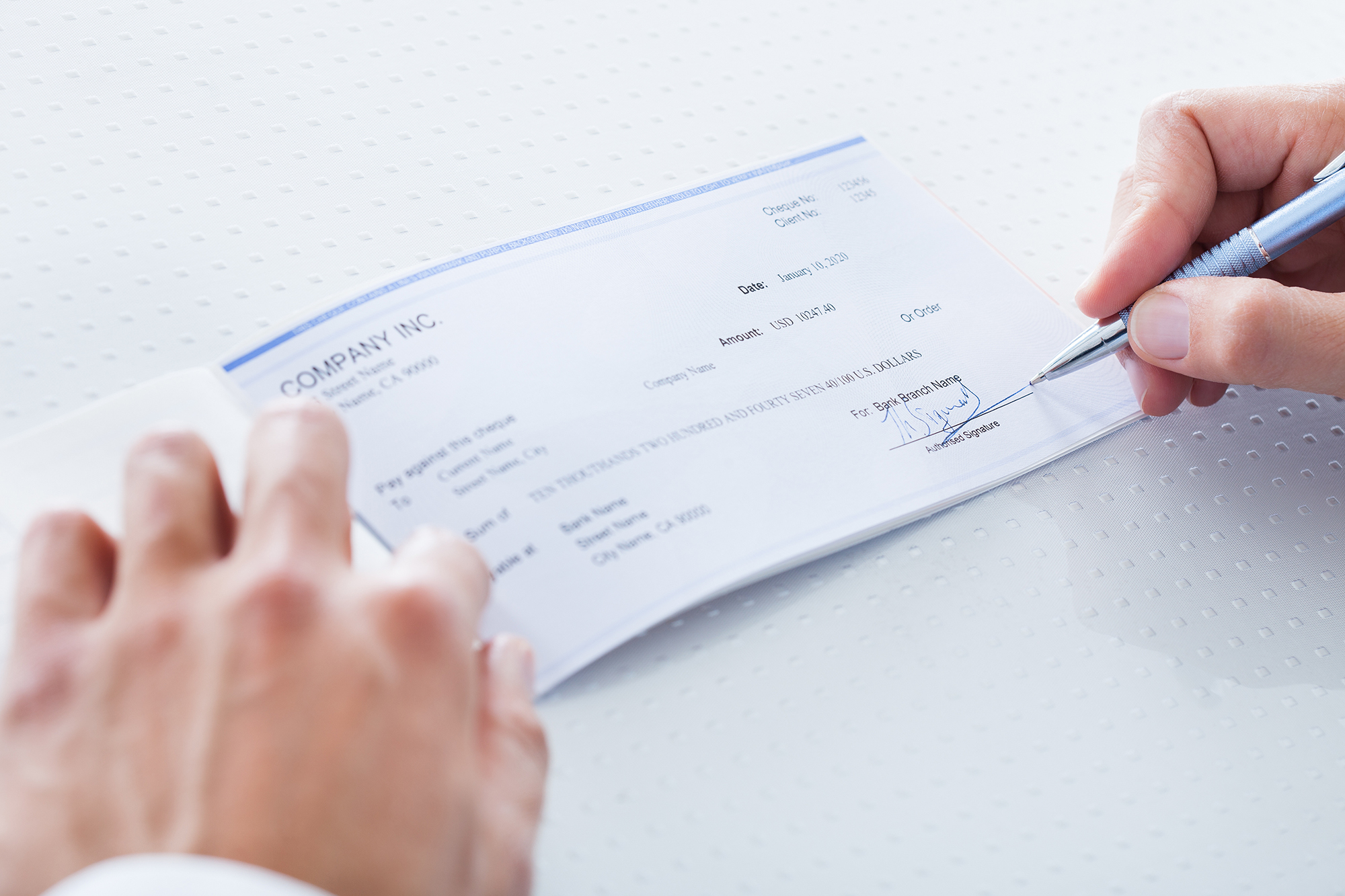Ethical Consequences of Counterfeit Check Scams

How to spot a counterfeit check, and what should you do if you think you’ve been scammed?
That question is at the heart of a recent NC State Bar ethics ruling, which suggests you start by using the smell test, followed by due diligence.
2021 Formal Ethics Opinion 2 discusses a lawyer’s professional responsibility to safeguard entrusted funds by identifying and avoiding purported transactions involving counterfeit checks.
In the underlying inquiry, a lawyer was solicited by a “client” to collect a debt from a third party. After sending a letter to the third party, the lawyer received a cashier’s check drawn on a foreign bank in payment of the debt. The lawyer deposited the check in his client trust account and disbursed the funds according to the client’s instructions (which included a 20 percent attorney’s fee). The check turned out to be counterfeit.
“Lawyer violated his duties of competency and diligence in representing Client because the scenario described above raises a number of red flags that should alert a lawyer practicing today to the potential for fraud in both the representation and the receipt and disbursement of funds,” according to the opinion, citing Rules 1.1 and 1.3. “Lawyer’s mistaken reliance on the counterfeit check is unexcused. Given the breadth of notice provided to the legal profession on this common scam, Lawyer should have realized that the circumstances surrounding this purported representation required additional investigation.”
2021 FEO 2 says lawyers have been on notice for at least a decade about such scams. The opinion contains a lengthy list of advisories and alerts – including articles from Lawyers Mutual and the NC State Bar Journal – warning of such scenarios.
“The fraud accomplished through the counterfeit check scam described in the present inquiry is, unfortunately, not a new problem for the legal community,” according to 2021 FEO 2. “State and federal agencies have alerted the public to the existence and persistence of these counterfeit check scams for some time.”
Lawyers Mutual can help you navigate the new normal. Our email newsletter “Practice Reimagined” offers timely tips, pointers and valuable links on wellness, work-life balance and quality of life – delivered straight to your in-box. Lawyers helping lawyers. It’s what we’ve been doing more than 40 years.
2021 FEO 2
A Lawyer’s Professional Responsibility in Identifying and Avoiding Counterfeit Checks
Here are some excerpts from the opinion:
- “For at least ten years, lawyers have been warned about being targets of scams such as the one at issue in this inquiry.”
- “Lawyer should have been alerted to the suspicious nature of this transaction based upon the circumstances in this scenario, including the unsolicited request for the representation; the willingness of the purported defendant to quickly resolve the dispute without much effort from Lawyer; the cashier’s check drawn on an out-of-country bank; and the cashier check being dated prior to Lawyer’s conversation with the purported defendant.”
- “Although one of these circumstances standing alone may not give cause for suspicion, the totality of the circumstances should have alerted Lawyer to the suspicious nature of the representation and the transaction. Lawyer’s failure to recognize the scam given the vast notice and information directed to lawyers on the topic demonstrated his lack of competency in violation of Rule 1.1. Furthermore, given the suspicious nature of the representation and transaction, Lawyer should have diligently investigated the legitimacy of the cashier’s check. Lawyer could have accomplished this by contacting the bank that issued the cashier’s check to confirm authenticity, or Lawyer could have informed Client of his concerns and waited to see that the cashier’s check was in fact honored and accepted by the issuing bank.”
- “By disbursing funds from Lawyer’s trust account on Client’s behalf when Lawyer did not actually have funds belonging to Client in Lawyer’s trust account, Lawyer disbursed entrusted funds belonging to other clients in violation of Rules 1.15-2(a), (k), and (n).”
- “Does Lawyer have a duty to replace the funds that were improperly disbursed as a result of the counterfeit check scam? Yes.”
- “Does Lawyer have a duty to report to the State Bar’s Trust Account Compliance Counsel the misappropriation of funds from Lawyer’s trust account resulting from the deposit and disbursement of the fraudulent cashier’s check? Yes.”
Source: NC State Bar
Have you checked out Lawyers Mutual Consulting & Services? Founded by Camille Stell, who also serves as president, LMCS is a subsidiary of Lawyers Mutual. Its mission is to help firms build a modern law practice. It does that by offering expert advice and assistance into law firm trends and best practices. Camille and LMCS helps lawyers and firms create strategic plans and succession plans. A popular speaker and writer, Camille loves to guide lawyers through succession planning and into Life after Law. Contact her today.




